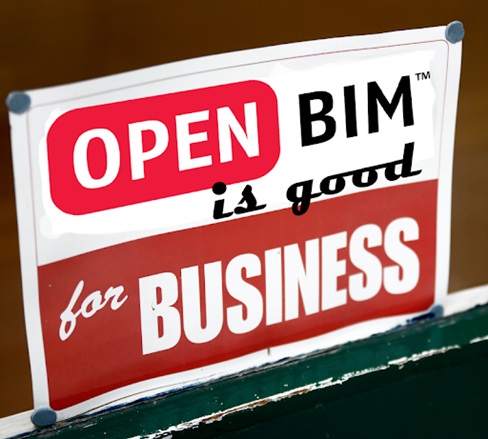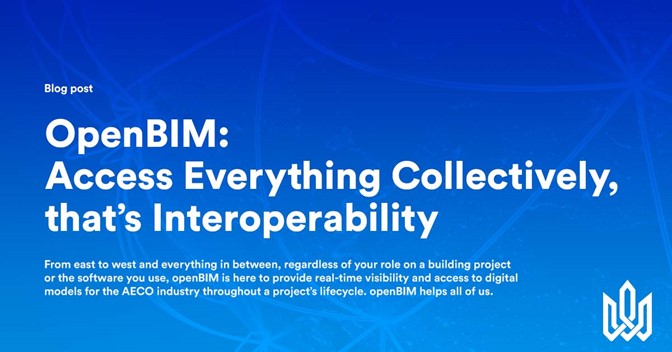From east to west and everything in between, regardless of your role on a building project or the software you use, openBIM is here to provide real-time visibility and access to digital models for the AECO industry throughout a project’s lifecycle. openBIM helps all of us. Understanding what it is and why it’s useful, is the purpose of this blog. Let’s use a real-world example to explain openBIM, openBIM standards, openBIM process, and openBIM workflow.
OpenBIM in the Wild
A manufacturing owner contracts an architectural firm to design a new facility. During the architect's design phase, the owner asks to see the work-in-progress, as does the structural engineer, and hey, let’s throw in the mechanical engineer for good measure. Plus, they all have liaisons and various stakeholders who want to view the design in real-time. If each individual on this project works in different parts of the world, and uses various BIM software, how will they all access, measure, and comment in real-time? Welcome to the world of openBIM, where everyone has access (if permitted) to collaborate collectively; that’s interoperability, and interoperability is openBIM at its core.

OpenBIM Standards and Processes
The architect is ready to share her digital design, so how does she best accomplish this? Her native design file is created using e.g. Archicad software; she then exports her design file as an IFC (Industry Foundation Classes) file, this is referred to as using openBIM standards. The act of exporting her file into an IFC starts the openBIM workflow. When she publishes her digital model in the open exchange format IFC and shares it with stakeholders on the project, she is starting the openBIM process... makes sense?
The Value of openBIM
When you adopt openBIM, you are welcoming in a bevy of benefits to your build. Avoiding communication and costly communication errors is one of these valuable benefits. You provide transparency, much needed transparency to the project, thus ensuring everyone is on board and accountable at all times. OpenBIM is access to data that makes a business difference during the design and construction phase, one that we’re thankful to have in the BIM environment. OpenBIM allows the different actors of a project to reduce their software expenses by keeping the tools they are familiar with while allowing them to collaborate on the same project. This can make a big difference in the industry.
The Go-To Analogy for IFC
An IFC file is like a PDF file in that both are “frozen” files, and as a PDF, an IFC file is viewable and can be modified if necessary. To go one step further, you can add a BCF (BIM Collaboration Format) on top of an IFC model layer to separate the communication from the model and enjoy other features that enhance coordination.

BIM Track’s we believe statements:
- You can't be everything to everyone. This is where open standards and interoperability are essential.
- Interoperability and open standards are non-negotiable musts for the evolution of the AECO industry and for taking the built world beyond BIM - to genuine collaboration.
- To create a viable ecosystem, technology developers need to be paving the way for true interoperability.
- We are firm believers in open formats and the value of enabling a networked ecosystem.
- Data heterogeneity among different software vendors is not the solution.
- Open standards are what will lead to efficiency by creating a framework for common understanding.
- Open standards make for effective communication -- Good communication is central to the success of projects.
- Impartiality from software vendors is key. Interoperability and connected ecosystems are essential for the evolution of design and construction by allowing the development of new point solutions.
- The evolution of technology is in the hands of the users. Users who choose open standards choose to protect freedom of choice when it comes to software vendors and software tools.
- Industry players need to take a stand and actively promote Open BIM in the AEC community.
Stay tuned for more on this topic as BIM Track and Newforma take to the stage at DCW on November 24 to elaborate on the topic of “Paving the Way for true interoperability The behavioral side of digitalization: Open standards and Openness to change."
If you are in London at that time, be sure not to miss it!
Register for free attendance here.
For more info on BCF, or our helpful IFC viewer, check out more blog posts on our website.


